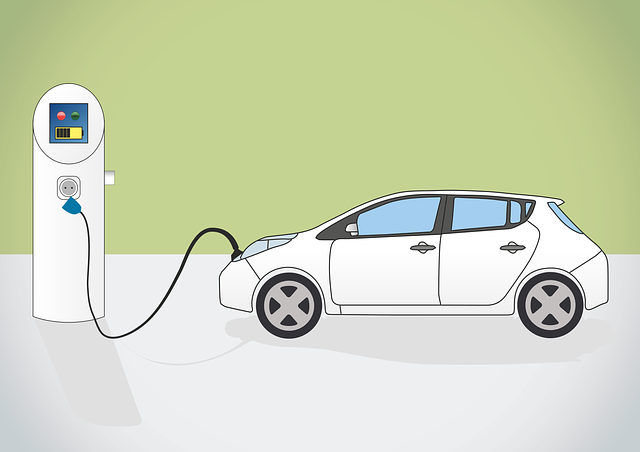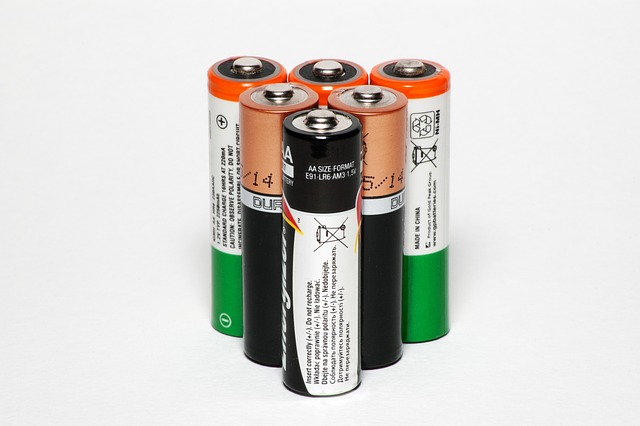Selecting the right car batteries involves understanding your vehicle's electrical needs and considering factors like type (deep cycle vs starting), climate impact, battery management systems, supplier reputation, and proper installation/maintenance. Regular checks, corrosion prevention, and safe recharging practices prolong battery life. Promptly address warning signs like starting difficulties or dashboard lights to ensure optimal performance and responsible disposal through recycling programs.
Looking to replace your car’s battery? Understanding your vehicle’s power needs is crucial before you begin. This guide will walk you through the process of selecting the best car batteries for sale, from different types and brands to key considerations. We’ll also show you where to find quality options and provide expert tips on installation and maintenance. By following these steps, you can ensure your car’s battery is up to the task of powering your vehicle efficiently.
- Understanding Your Car's Battery Requirements
- Types of Car Batteries Available in the Market
- Factors to Consider When Selecting a Car Battery
- Where to Find and Purchase Quality Car Batteries
- Installation and Maintenance Tips for Optimal Performance
- Common Issues with Car Batteries and How to Troubleshoot
Understanding Your Car's Battery Requirements

Understanding your car’s battery requirements is a crucial step when selecting car batteries. Different vehicles have varying electrical demands, and choosing the right battery type ensures optimal performance and longevity. Modern cars require powerful starting batteries to crank engines efficiently, while older models might benefit from deep cycle batteries designed for sustained power output rather than high-amp bursts.
When considering car batteries for sale, remember the distinction between deep cycle vs. starting batteries. Starting batteries are optimized for quick bursts of high current during ignition, whereas deep cycle batteries excel in providing steady, lower voltage for prolonged periods, making them ideal for off-road cars or situations where recharging is not frequent. Always ensure safe recharging practices to prolong battery life and avoid potential hazards.
Types of Car Batteries Available in the Market

When it comes to selecting car batteries, consumers today have a wide array of options available in the market. This variety is reflective of the evolving automotive landscape and the diverse needs of drivers. Among the most common types are lead-acid batteries, which are known for their affordability and reliability but require regular maintenance. These are typically found in older vehicles and are suitable for those on a budget who don’t mind periodic checks and top-ups.
For more modern cars, deep cycle batteries offer an improved alternative. These are designed to handle frequent charging and discharging cycles without damage, making them ideal for vehicles with higher electrical demands, such as those with advanced infotainment systems or electric vehicle (EV) owners. Moreover, the latest trend in car battery technology involves lithium-ion batteries, renowned for their lightweight design, high energy density, and low self-discharge rate. While they tend to be more expensive than conventional options, they offer superior performance and longevity, especially with proper care, as demonstrated by knowing how to test a car battery regularly.
Factors to Consider When Selecting a Car Battery

When selecting a car battery for sale, several factors come into play to ensure you get the best fit for your vehicle and driving needs. Firstly, consider the climate in which you primarily drive. Extreme temperatures can significantly affect battery performance; cold weather may reduce its capacity, while hot climates can speed up corrosion. Thus, for regions with fluctuating seasons or long distance travel, a high-quality, durable battery designed to withstand varying conditions is essential.
Another critical aspect is the type of car battery you require. There are various options available, including conventional lead-acid batteries and advanced models like maintenance-free or absorbent glass mat (AGM) batteries. The former is affordable but requires regular maintenance, while AGM batteries offer longer life, superior performance, and no spillage risk. Additionally, smart car battery management systems can optimize charging and prolong battery life, especially for those frequently engaging in long distance travel. Always compare these factors to Select the best car battery that aligns with your vehicle’s requirements.
Where to Find and Purchase Quality Car Batteries

When looking to purchase a quality car battery, one of the first steps is to select a reputable supplier or retailer. With numerous options available, choosing the right source is essential for ensuring you get a reliable and high-performance car battery. Start by researching online platforms and reviews; many automotive stores and specialized websites offer a wide range of batteries, allowing you to compare prices, specifications, and customer feedback. This process enables you to make an informed decision based on your vehicle’s requirements.
Additionally, considering auto battery safety precautions is paramount. Look for suppliers who prioritize safety protocols, especially when handling and packaging batteries. Proper storage and transportation are critical to preventing damage and ensuring the top-rated marine batteries (or car batteries) you purchase remain in excellent condition. Select sellers that adhere to industry standards and provide clear instructions on installation and maintenance to guarantee a seamless experience.
Installation and Maintenance Tips for Optimal Performance

Selecting a high-quality car battery is just the first step; proper installation and regular maintenance are crucial for optimal performance. Once installed, ensure secure connections by checking and tightening battery terminals regularly to prevent corrosion. A clean and well-insulated battery tray ensures the battery stays cool and prevents short circuits.
Regular car battery maintenance tips include keeping the battery area clean and dry, avoiding excessive heat, and regularly testing the battery’s health. Maintaining a consistent charge level through smart charging habits will extend the life of your high-performance car batteries. Remember, regular upkeep can significantly contribute to achieving long lasting car batteries, ensuring your vehicle starts reliably every time.
Common Issues with Car Batteries and How to Troubleshoot

Car batteries are a critical component of any vehicle, but like all components, they can develop issues over time. Common problems include reduced battery life due to frequent short trips, undercharging or overcharging, corrosion on terminals, and leaks from damaged cases. If your car struggles to start or shows warning lights related to the battery, it’s likely time for a check-up.
Troubleshooting begins with inspecting the battery for any visible damage or corrosion. Regular cleaning of the terminals can prevent issues stemming from poor connections. For intermittent problems, checking the alternator and charging system is essential. Recharging car batteries safely using a compatible charger is crucial to avoid damage. If the battery is old, consider recycling it through established car battery recycling programs, which not only helps the environment but also ensures proper disposal of hazardous materials.
When selecting a car battery, understanding your vehicle’s needs, choosing from the diverse types available, and considering key factors can ensure you buy the perfect fit. Researching reputable sources for quality batteries and learning installation and maintenance best practices will further optimize performance. By troubleshooting common issues, you can extend the lifespan of your car battery and avoid costly breakdowns. Remember, the right choice in a car battery is a game-changer for reliable driving.
